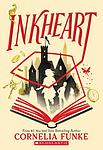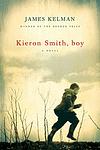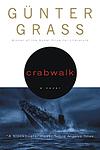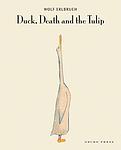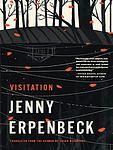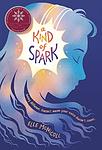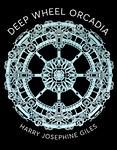The Greatest Scottish, German "Fiction" Books Since 2000
Click to learn how this list is calculated.
This list represents a comprehensive and trusted collection of the greatest books. Developed through a specialized algorithm, it brings together 285 'best of' book lists to form a definitive guide to the world's most acclaimed books. For those interested in how these books are chosen, additional details can be found on the rankings page.
Genres
Countries
Date Range
Reading Statistics
Click the button below to see how many of these books you've read!
Download
If you're interested in downloading this list as a CSV file for use in a spreadsheet application, you can easily do so by clicking the button below. Please note that to ensure a manageable file size and faster download, the CSV will include details for only the first 500 books.
Download-
1. Austerlitz by W. G. Sebald
The novel follows the story of Jacques Austerlitz, an architectural historian who was brought to England on a Kindertransport from Czechoslovakia during World War II. As an adult, Jacques embarks on a journey to uncover his past, including his original identity, his parent's fate, and his own lost history. The narrative is a haunting exploration of memory, identity, and the lasting impact of the Holocaust.
-
2. The Book Thief by Markus Zusak
Set in Nazi Germany during World War II, the novel follows the story of a young girl who finds solace in stealing books and sharing them with others. In the midst of the horrors of war, she forms a bond with a Jewish man her foster parents are hiding in their basement. The story is narrated by Death, offering a unique perspective on the atrocities and small acts of kindness during this period. The girl's love for books becomes a metaphor for resistance against the oppressive regime.
-
3. The Swarm by Frank Schatzing
"The Swarm" is a science fiction novel that explores the disastrous consequences of mankind's exploitation of the world's oceans. The narrative follows a group of scientists around the world as they try to understand a series of inexplicable, catastrophic natural disasters. They eventually discover that these events are not random but are the result of a collective intelligence in the sea, a swarm of marine life that has decided to fight back against humanity's destruction of their habitat. The book combines elements of ecological thriller, disaster novel, and speculative fiction as it explores the potential consequences of human interference with the natural world.
-
4. Inkheart by Cornelia Funke
The book revolves around a young girl named Meggie and her father Mo, who possesses a unique ability to bring characters from books to life by reading aloud. This gift, however, comes with a price, as they are entangled in a dangerous adventure when a villain from a fantasy book called "Inkheart" is accidentally summoned into the real world. As they struggle to fix the chaos caused by this crossover, they must navigate a treacherous world of magic and betrayal, while attempting to thwart the villain's sinister plans and protect the balance between reality and the fantastical realms of literature.
-
5. Measuring the World by Daniel Kehlmann
"Measuring the World" is a historical novel that reimagines the lives of two brilliant and driven men, German mathematician Carl Friedrich Gauss and German geographer Alexander von Humboldt. The narrative alternates between the two protagonists, exploring their individual quests to quantify and understand the world. Gauss, a child prodigy from a poor family, rises to become one of the greatest mathematicians in history, while Humboldt, a wealthy and ambitious explorer, embarks on a five-year journey across South America. Their paths converge in a humorous and touching manner, highlighting the contrast between their approaches to knowledge and discovery.
-
6. The Blind Side of the Heart by Julia Franck
"The Blind Side of the Heart" is a historical novel that explores the life of a German woman before, during, and after World War II. The story begins with her abandonment of her young son at a railway station, then flashes back to her own childhood, her experiences during the war, and her tumultuous relationships. The narrative provides a deep and unflinching look at the psychological effects of war and the struggle for survival, as well as the profound impact of trauma and loss.
-
7. Kieron Smith, Boy by James Kelman
"Kieron Smith, Boy" is a novel that explores the life and mind of a young boy growing up in a working-class family in post-war Glasgow. The narrative is presented from the boy's perspective and is marked by his unique voice and thought process. The story follows his experiences at home, at school, and in the larger world, his struggles with societal expectations, and his dreams of becoming a shipbuilder. The book is a poignant portrayal of childhood, exploring themes of class, identity, and the complexities of growing up.
-
8. Crabwalk by Günter Grass
This novel delves into the tragic sinking of the Wilhelm Gustloff, a German ship, during World War II, through the eyes of a journalist investigating the event's historical and personal ramifications. The narrative weaves together past and present, exploring the intergenerational impact of the catastrophe on survivors and their descendants. The author employs a unique storytelling technique, the "crabwalk," moving backward and forward in time to reveal the complexities of guilt, memory, and the reinterpretation of history. Through its intricate plot and deep character exploration, the book addresses the themes of nationalism, the repercussions of war, and the struggle to come to terms with one's heritage.
-
9. Duck, Death And The Tulip by Wolf Erlbruch
"Duck, Death And The Tulip" is a poignant and thought-provoking illustrated book that explores the themes of life, death, and friendship. The story follows a duck who unexpectedly befriends Death, and together they embark on a journey of contemplation and acceptance. Through their conversations and experiences, the book delicately tackles the existential questions surrounding mortality, while offering a tender and comforting perspective on the inevitability of death.
-
10. The Night Sessions by Ken MacLeod
This science fiction novel delves into a future where the world has largely moved beyond religion, following devastating religious wars. Set in a technologically advanced society, the story follows a police investigation led by Detective Inspector Adam Ferguson into a series of bombings. These attacks seem to be motivated by religious extremism, a concept thought to be a thing of the past. As Ferguson digs deeper, he uncovers a conspiracy that challenges the secular foundations of his world, involving robots and artificial intelligences who have developed their own faiths. The narrative explores themes of faith, science, and the nature of belief in a society where technology has reshaped every aspect of human life.
-
11. Crime by Ferdinand Von Schirach
"Crime" is a collection of short stories that explores the complexities of human behavior and the legal system. Each story presents a different crime and delves into the motivations and consequences behind it, challenging readers to question their own notions of justice and morality. With a keen eye for detail and a unique perspective, the author weaves together thought-provoking narratives that expose the intricacies of the human psyche and the flaws of the legal system.
-
12. The Invention Of Nature: Alexander Von Humboldt’s New World by Andrea Wulf
"The Invention of Nature" is a biographical account of Alexander von Humboldt, a 19th-century explorer, scientist, and naturalist who revolutionized the way we understand the natural world. Andrea Wulf chronicles Humboldt's travels across South America, his encounters with indigenous peoples, and his groundbreaking scientific discoveries that challenged prevailing notions of the natural world. Humboldt's ideas about interconnectedness and the unity of nature were ahead of their time and continue to influence environmentalism and conservation today. Wulf's book is a masterful exploration of one of history's most fascinating and influential figures.
-
13. Visitation by Jenny Erpenbeck
"Visitation" is a novel that explores the history of a house located by a lake in Brandenburg, Germany, and the various inhabitants it has seen over the centuries. The narrative spans from the early 20th century to the post-war period, encompassing the tumultuous events of the Weimar Republic, the Third Reich, and the German Democratic Republic. Each chapter is dedicated to a different resident's story, including a Jewish family, an architect, a young girl, and a Soviet officer, among others, creating a tapestry of human experiences and emotions shaped by the historical and political upheavals of the time.
-
14. Fortune's Wheel by Rebecca Gablé
"Fortune's Wheel" is a historical novel that transports readers to the tumultuous period of the Hundred Years' War and the Black Death in Europe. The story revolves around a young English craftsman who rises from the ashes of personal tragedy. As he navigates the complex social hierarchies and political turmoil of the 14th century, he finds himself caught between loyalty and ambition, love and duty. The protagonist's journey is one of resilience and transformation, set against the backdrop of a world where the whims of fate can uplift or destroy the fortunes of men. Through vivid storytelling, the novel explores themes of power, destiny, and the enduring human spirit.
-
15. Shuggie Bain by Douglas Stuart
"Shuggie Bain" is a heart-wrenching tale set in 1980s Glasgow, Scotland, centered on a young boy, Shuggie, who is struggling with his mother's deteriorating mental health and alcoholism. As he tries to navigate his own burgeoning sexuality in a harsh, unforgiving environment, he also strives to care for his mother, who is trapped in a cycle of addiction and abusive relationships. The book gives a stark portrayal of poverty, addiction, love, and the human spirit's resilience.
-
16. A Kind Of Spark by Elle McNicoll
"A Kind of Spark" tells the story of Addie, an 11-year-old girl with autism who is determined to fight for acceptance and understanding in her small town. Inspired by the historical injustices faced by those accused of witchcraft, Addie embarks on a mission to have a memorial erected in memory of the people who were wrongfully persecuted. Through her unwavering determination, Addie not only educates her community about neurodiversity but also discovers the power of her own voice. This heartfelt and empowering novel explores themes of identity, friendship, and the importance of standing up for what is right.
-
17. The Collini Case by Ferdinand Von Schirach
This gripping legal thriller delves into the complexities of the German legal system through the lens of a seemingly inexplicable murder case. When an elderly industrialist is found brutally murdered, the suspect, an Italian man with no apparent motive, confesses to the crime, sparking a sensational trial. The young defense attorney assigned to the case finds himself embroiled in a deep-seated legal conundrum that challenges his beliefs about justice and morality. As he delves deeper, he uncovers a dark chapter of German history that reveals the true motive behind the murder, forcing him to confront uncomfortable truths about the past and its impact on the present. This novel is a compelling exploration of guilt, redemption, and the quest for justice in the shadow of historical atrocities.
-
18. Personality by Andrew O'Hagan
"Personality" by Andrew O'Hagan is a thought-provoking exploration of identity and fame in the digital age. The book follows the story of a famous actress who decides to create a digital replica of herself to preserve her legacy. As the replica interacts with fans and becomes more popular, it raises questions about authenticity, privacy, and the blurred lines between reality and virtuality. With O'Hagan's sharp writing and insightful observations, "Personality" delves into the complexities of modern fame while challenging readers to reflect on the nature of self in an increasingly interconnected world.
-
19. The Deadman’s Pedal by Alan Warner
"The Deadman's Pedal" is a coming-of-age novel set in a small Scottish town in the 1970s. It follows the life of Simon Crimmons, a young trainee signalman who becomes infatuated with a local girl, Nikki, and finds himself caught up in the complexities of adult relationships and the harsh realities of working-class life. The story explores themes of love, loss, and the struggle to find one's place in a changing world, painting a vivid picture of a community on the brink of transformation.
-
20. Alberta empfängt einen Liebhaber by Birgit Vanderbeke
"Alberta empfängt einen Liebhaber" is a German novel that explores the life of Alberta, a woman in her forties who lives a routine life with her husband and children. Her world is turned upside down when she begins an affair with a much younger man. The novel delves into her internal struggle as she tries to reconcile her traditional values with her newfound passion and freedom. The story is a profound exploration of middle age, femininity, and the complexities of desire.
-
21. The Tower by Uwe Tellkamp
The novel is an intricate exploration of life in Dresden, East Germany, before the fall of the Berlin Wall, focusing on the lives of an aristocratic family. Through a detailed narrative, it delves into the complexities of living under a repressive regime, highlighting the struggles of the intellectual elite as they navigate censorship, surveillance, and the moral compromises required to maintain their status and beliefs. The story, rich in detail and character development, paints a vivid picture of a society on the brink of change, capturing the tension between personal ambition and political ideology.
-
22. Fleshmarket Close by Ian Rankin
In this gripping crime novel, a detective inspector based in Edinburgh, Scotland is working on multiple cases simultaneously. He investigates the murder of an illegal immigrant, the disappearance of a refugee, and the murder of a local gangster. As he delves deeper, he uncovers a web of corruption, political conspiracy, and human trafficking. Throughout the story, the inspector battles personal demons and navigates the complexities of the Scottish legal system.
-
23. Deep Wheel Orcadia by Harry Josephine Giles
"Deep Wheel Orcadia" by Harry Josephine Giles is a speculative fiction novel set in a future where climate change has ravaged the world. The story follows the protagonist, a young woman named Jo, as she navigates the post-apocalyptic landscape of Orcadia, a floating city made up of interconnected wheels. Jo becomes involved in a rebellion against the oppressive ruling class, discovering secrets about the city's history and her own identity along the way. Through themes of power, resistance, and personal growth, the novel explores the complexities of a society on the brink of collapse and the resilience of the human spirit.
Reading Statistics
Click the button below to see how many of these books you've read!
Download
If you're interested in downloading this list as a CSV file for use in a spreadsheet application, you can easily do so by clicking the button below. Please note that to ensure a manageable file size and faster download, the CSV will include details for only the first 500 books.
Download


